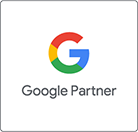Leveraging the Age of Entitlement
It’s undeniable that online technologies have changed our perspective on ownership. This shift is most often explored within the context of media theft—impetuous youth downloading music and movies—but all sides of the economy have been affected. Media distributors are moving toward subscription models, and digital content is increasingly provided at the cost of watching advertisements. These new models (and rehashed old models) foster a sense that the consumer is entitled to immediate, if ephemeral, access to a product, and that access has become part of the product’s value. The recent battle between Google and Microsoft over a YouTube app has shown that a company can leverage this sense of entitlement to put pressure on partners and competitors.
Microsoft developed a YouTube app for its Windows Phone, but the app didn’t serve ads correctly, so Google shut it down. Microsoft re-released the app to comply with Google’s requirements, but it wasn’t built in HTML5, which Google insisted upon despite the fact that other YouTube apps were allowed to stand despite not being built in HTML5. This is a simplified version of events, because I’m more concerned with how the battle is evolving, so you can look into the details for yourself if you’re interested.
After Google blocked the updated YouTube app for the Windows Phone, the backlash from Windows Phone users was venomous, fueled in part by Microsoft’s suggestion that this was a philosophical inconsistency on Google’s part. Microsoft, oddly enough, is using the growing sense of entitlement to access, placing the onus on Google and its supposed commitment to openness to ensure its products are available on any device. That kind of sentiment, the idea of an open and accessible online environment, is a powerful force and can carry as much if not more weight than product quality. Apple, for example, is famous for leveraging sentiment.
On ZDNet, Matt Baxter-Reynolds called Microsoft on its complaints, saying that Google has every right to reject Microsoft’s app and for whatever reason it likes. It’s true. As long as Google isn’t falling afoul of the law, it can do whatever it wants with its products. On the other hand, in this new atmosphere of entitlement, which Google helped create, Microsoft also has every right to subject Google to public shaming for being unfair. Lots of business practices are perfectly legal but don’t look good to the consuming public, and for a company that depends on maintaining a tremendous volume, consumer sentiment is at the heart of Google’s success.
In this climate, when someone buys a smartphone, any smartphone, they expect to be able to use the same services at the same level of quality. Access is not considered a differentiating feature; it’s expected. People think of the device as a window to the same internet that everyone gets, whether that’s fair or not. It no longer matters if Google had every right to make the choice it did. Google has to live up to an ideal as well as provide a quality service and stay within the bounds of the law, or it’ll find its users going to Bing.
Postscript: Entitlement and Online Media
Recently, the massive illegal downloading of new episodes of Breaking Bad was attributed to access to the content as well as cost. Although there were plenty of US viewers who chose to steal rather than buy, there were also plenty of UK viewers who illegally downloaded the content because they didn’t want to wait 24 hours (at which time it would have become available for legal download). Equal access means access at the same time—a lack of immediacy is now unacceptable to consumers. I’m not suggesting that illegal downloading is the fault of the content distributors, but anyone who wants to offer an online service is going to have to understand the current expectations of their users if they’re going to mitigate the potential damage.


.png)
